Lived Experience Research Advisory Group
The Lived Experience and Research Advisory Group is an expert advisory body to the Royal Commission's research program. The Lived Experience and Research Advisory Group provides advice in relation to research evidence and helps evaluate methodology from both lived experience and academic perspectives.
The members of the Advisory Group include people with a lived experience of suicide or suicidality in the Defence and veteran context and researchers working in the areas of suicidality, data science and Defence and veteran health. The group is Chaired by Commissioner Peggy Brown AO.
The Royal Commission provides secretariat support to the advisory group.
Lived Experience members
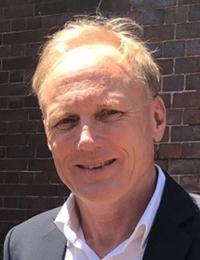
Daniel joined the Royal Australian Air Force in 1984 as an Engineer Officer Cadet and graduated with an Aeronautical Engineering Degree from the Royal Melbourne Institute of Technology in December 1987. He has also completed a Master of Science in AeroSystems Engineering. As part of his career in the RAAF, Daniel worked on a range of Hornet intermediate and operational maintenance roles, as well as various maintenance engineering and logistics management functions with ADF Precision Guided Munitions. Daniel was posted to the USA to work the RAAF’s Hornet Armament Technical Liaison Officer, a career highlight. On returning to Australia Daniel was Senior Maintenance/Engineering Officer at Williamtown Hornet squadron, during this posting he was awarded an Australian Day Medallion for outstanding effort in leading the implementation of a revised airworthiness management system into the unit. His final RAAF posting was as the Director of Logistics Capability and Continuing Airworthiness Manager within Headquarters Air Combat Group. Retiring from the RAAF with the rank of Group Captain at the end of 2017, Daniel then undertook a range of reservist tasks sharing his leadership, management, organisational design and governance experience across a number of agencies including Air Command, Air Combat Group, Surveillance and Control SPO, and 42 Wing.
Following serious health issues that required Daniel to step back from work, Daniel is now leading a number of improvement projects for a leading Australian Defence company.
Trudi joined the Royal Australian Air Force as a Clerk Supply in 2003, inspired by her grandfather who was a bomber pilot in World War II. Trudi moved to Air Movements in 2007, where she completed weight and balance paperwork for the aircraft, cargo and passenger manifests for aircraft, loaded and unloaded aircraft, marshalled aircraft, and liaised with external stakeholders such as customs and quarantine. Also in 2007, Trudi worked in Papua New Guinea supplying humanitarian aid following a cyclone. While in the RAAF she was deployed to Afghanistan in 2008 and 2010, and in 2009 went to Thailand and Indonesia for various operations before transferring to the Army Engineers in 2011. Following completing Electrical training with the Engineers in the Army, Trudi returned to the RAAF in 2015 and in 2016 was diagnosed with post-traumatic stress disorder.
One of Trudi’s biggest challenges was feeling too ashamed to go back to work, and by the time she could go back to work, she was medically discharged. Trudi then worked as a Peer Advisor with Open Arms, having realised her lived experience could help others. She believes in fostering open discussions around mental health and PTSD, including outside the clinical space, and ending stigma. Trudi competed in the Invictus Games in 2018, winning a gold medal.
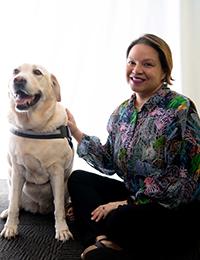
Hannah is an ex-serving member of Royal Australian Air Force. She worked as a logistics officer from 2008 to 2015 and was primarily posted to Townsville and Wagga Wagga after training in Canberra. Hannah qualified as a social worker after a medical discharge from the RAAF in 2015. Since discharging, Hannah has completed higher education studies in mental health practice, international and community development, gender studies, and social work.
Hannah is passionate about the veterans’ experiences post-discharge, and is currently completing a PhD on the experience of discharge and transition of Australian contemporary veterans who go onto higher education. She is a committed social work practitioner, social work lecturer and uses therapy dogs as part of her practice, including working with veterans.
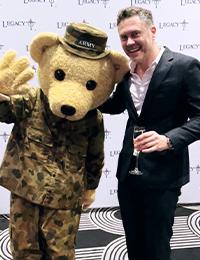
Ken is also known by his Aboriginal name, Kira-Dhan, a Kabi-Kabi man who served as a soldier in the Australian Army Reserve for eight years, in which he gained experience as an Artillery Crew Commander and Defence Force Career Advisor with the Indigenous Recruitment and Career Development Program.
As managing director of Gamarada Universal Indigenous Resources (G.U.I.R) Pty Ltd and the registered charity, Gamarada Indigenous Healing and Life Training Pty Ltd., Ken provides professional services across the private, government and community sectors. In 2010, Gamarada was recognised by the NSW Department of Premier and Cabinet with an Excellence Award for Building Leadership in Indigenous Communities. In 2019, Ken received the honorary award ‘Doctor of Health Sciences’, from the University of Sydney for outstanding contribution to Australian society.
Ken works primarily in the health, mental health, education, justice, and employment sectors and is active in program co-design, research and evaluation, coaching, mentoring, and organisational capacity building. His work draws on First Nations’ wisdom and traditions, psychology and military leadership and is underpinned by his proprietary registered G.U.I.R Courage Coaching model, which provides a culturally safe and trauma informed framework to guide and inform his practice.
Academic members
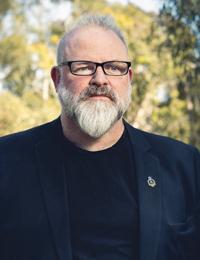
Ben is the Director of the Open Door: Understanding and Supporting Service Personnel and their Families research initiative in the College of Education, Psychology, and Social Work.
Open Door is an Australasian research hub that brings together veterans, scholars, and practitioners together and promotes a social determinants approach to veteran and family wellbeing.
As a veteran himself, Ben's research is focused on the health and wellbeing of serving personnel and veterans. He conducts sociological and criminological research on the Australian Defence Force and the Department of Veterans’ Affairs including institutional abuse in the ADF, veteran suicide, and veteran transition into higher education. Ben conceived of, and led, the development of the Military Academic Pathway Program (MAPP) at Flinders University, the only foundation course for veterans in Australia.
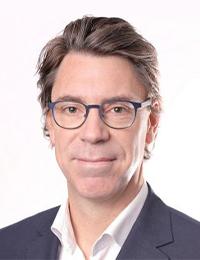
Andrew is a Professor and the Chair of Epidemiology in the Translational Health Research Institute at Western Sydney University. Andrew has extensive research experience in epidemiology, psychology and public health. His research shows a particular interest in the study of suicide and mental health, the social determinants of health, injury prevention, breast cancer screening, and maternal and child health.
Andrew also has interests in the application of systems science and simulation approaches to epidemiological evidence. Such an approach works to inform policy and decision support tools used in health services. Andrew is also the Director of the Master of Epidemiology program in the School of Medicine.
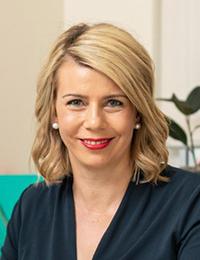
Miranda is an experienced research scientist who has published extensively on the mental health impacts of bushfires, childhood adversity and occupational trauma.
Over the last 15 years her research has focused on the mental health and wellbeing of current and former Australian military and emergency service personnel. She was the lead researcher on three landmark studies: The Transition and Wellbeing Research Programme, The Military Health Outcomes Programme and the South Australian Metropolitan Fire Service Health and Wellbeing Study. The majority of her research is designed to enhance the mental health and wellbeing of Australian servicemen, servicewomen and their families.
Miranda is the Executive Director of Military and Emergency Services Health Australia, which delivers research, programs and training to support military, emergency services personnel and their families across Australia. She is a passionate advocate for the role of trained lived experience peers in the co-design and delivery of programs and services in order to ensure they are delivered with authenticity, respect and cultural competency.
Nicole Sadler is a Clinical Psychologist and the Head of Policy and Practice at Phoenix Australia – Centre for Posttraumatic Mental Health. She is also an Enterprise Professor within the Department of Psychiatry, University of Melbourne.
For over two decades Nicole has been working with military members, veterans, emergency services workers and frontline health care professionals, who due to the nature of their work, can be impacted by trauma and adversity. She is an expert in trauma, mental health and wellbeing, and she has an in-depth understanding of issues and challenges for individuals working in high-risk organisations and roles, and the systems and services required to improve and maintain their mental health and wellbeing, including after they have transitioned out of these roles.
Prior to joining Phoenix Australia in 2017, she served in the full-time Army for 23 years and completed her career in the senior Army psychology position at the rank of Colonel. She has a strong record of accomplishment in setting and implementing strategic direction in mental health and personnel management within the Australian Defence Force, which was recognised with a Member of the Order of Australia in 2018 and a Conspicuous Service Cross in 2009.
Nicole is currently undertaking a PhD through the University of Adelaide, investigating suicide ideation and behaviours in serving and ex-serving Australian Defence Force personnel.
